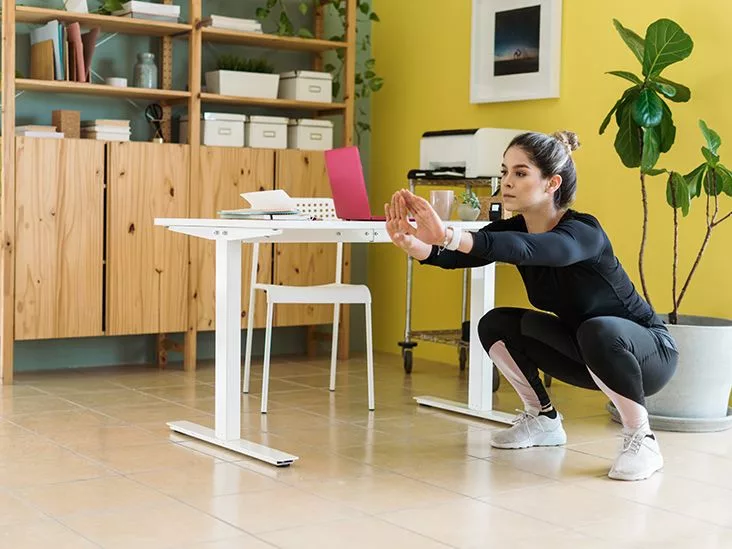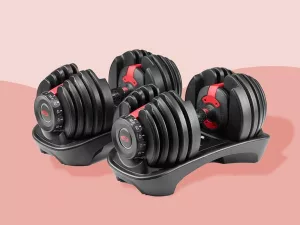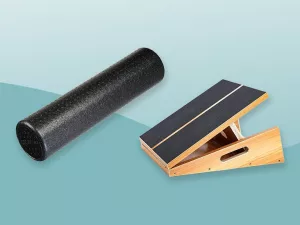Ever felt your day stretch on forever and wonder where the time went? You’re not alone. Most of us sit through meetings, stare at screens, and wait for the next coffee break while our bodies sit‑down‑loudly begging for a little movement.
Enter exercise snacks – those bite‑size bursts of activity that last from 30 seconds to five minutes. They’re the quick‑fit equivalent of a candy bite: small, satisfying, and able to lift your energy, mood, and health without demanding a full‑blown workout. Let’s dive into why they work, how you can start, and the real‑world moves you can sprinkle through any day.
Why They Work
Science Behind Short Bursts
Researchers at Stanford’s Lifestyle Medicine pillar define exercise snacks as “short bouts of movement, anywhere from 30 seconds to five minutes, that don’t require a gym or any prep work.” Stanford Lifestyle Medicine explains that the key is getting your heart rate up fast enough to make speaking a full sentence difficult. That brief spike triggers the same metabolic pathways as a longer cardio session, but it’s spread out across the day.
In 2022, an associate professor of muscle physiology at the University of Toronto led a study that found these micro‑bursts improve muscle protein synthesis and keep blood sugar steadier than a single 30‑minute jog. The study showed participants who took two‑minute “snacks” every hour had better insulin sensitivity than those who stayed seated for 10 hours and only exercised for one continuous block.
Health Benefits Backed by Research
- Metabolic boost: Frequent spikes in heart rate help lower fasting glucose and improve cholesterol profiles.
- Cardiovascular health: Small bouts increase circulation, keeping arteries flexible.
- Mental clarity: A quick surge of blood to the brain can lift mood and cut stress, often feeling like a caffeine jolt without the crash.
- Joint friendliness: Because each snack is brief, there’s less cumulative joint load compared to a long, high‑impact session.
The Washington Post even called these “snack‑size workouts” a practical way to fight the health risks of sitting all day, noting that they can be just as effective as a traditional 30‑minute jog for raising endurance.
Comparison Table
| Factor | 5‑Minute Snack (×3‑5 times) | 30‑Minute Continuous Workout |
|---|---|---|
| Total active minutes | 15‑25 min | 30 min |
| Heart‑rate pattern | Frequent peaks, quick recovery | Sustained moderate zone |
| Energy after | Immediate boost, no crash | Possible dip if over‑exerted |
| Beginner friendliness | High – no gear, short time | Medium – may need warm‑up |
Getting Started
Pick Your Snack Size
Not all snacks need to be the same length. Here’s a quick guide:
- 30‑second snack: Jumping jacks, high‑knee march, or a rapid set of air squats.
- 1‑minute snack: Burpees (or the joint‑friendly “walking‑back burpee” Dr. Oppezzo recommends), mountain‑climber bursts, or a quick stair sprint.
- 3‑5‑minute snack: A mini Zumba video, the “Pet the Puppy” squat‑step circuit, or a short body‑weight circuit (push‑ups, lunges, plank).
Choose a length that feels doable right now. If you’re new, start with 30‑second bursts and gradually add time as the habit sticks.
Fit Them Into Your Day
Think of your daily schedule as a buffet table and place a snack on every plate you’d normally leave empty:
- Morning coffee: While the kettle boils, do 30 seconds of high‑knee marching.
- Mid‑morning email batch: After sending that last reply, sprint up two flights of stairs for 1 minute.
- Lunch prep: While the pasta boils, complete a “Pet the Puppy” 2‑minute circuit.
- Afternoon slump: Stand, do 20 seconds of jumping jacks, then sit back down.
- Evening wind‑down: A gentle 1‑minute stretch or seated leg lifts before the TV starts.
Linking movement to existing cues (coffee, emails, meals) makes the habit automatic – the brain learns “when I hear the coffee grinder, I move.”
Safety and Form Tips
Even short bursts deserve good form. A few expert pointers:
- Neutral spine: Keep your back straight during squats and lunges to protect the lower back.
- Soft landings: When you jump, land on the balls of your feet with knees slightly bent – this reduces joint impact.
- Joint‑friendly alternatives: If you have knee pain, swap jumping jacks for marching in place, or replace burpees with “walking‑back burpees” (hands on a chair, step back, push‑up, step forward, squat).
- Breathing: Exhale on the effort (e.g., when you push up) and inhale on the recovery. It helps keep oxygen flowing and prevents dizziness.
Sample Snack Schedule
| Time | Snack (Duration) | Movement | Intensity Cue |
|---|---|---|---|
| 8:30 am | 1 min | Jumping jacks + push‑ups | Get breathless, can’t talk full sentences |
| 10:30 am | 2 min | Stair‑climb sprints (2 floors up & down) | Heart rate > 150 bpm |
| 12:30 pm | 30 sec | High‑knee march while coffee brews | Arms pumping, knees high |
| 3:00 pm | 3 min | “Pet the Puppy” squat‑step circuit | Hard to speak, sweat a little |
| 5:00 pm | 2 min | Quick Zumba clip (YouTube) | Feel the beat, smile |
Snack Ideas
Office Quick Workouts
Here are a few moves that need only a hallway or a small office corner:
- Desk‑chair squats: Stand in front of your chair, sit down lightly, stand up – repeat for 30 seconds.
- Printer‑jacks: While waiting for a printout, do jumping jacks right beside the machine.
- Stair‑run bursts: Sprint up two flights, walk back down, repeat for 1‑minute.
- Walking‑back burpees: Hands on the back of a chair, step back, push‑up, step forward, squat – perfect if you can’t jump.
Home Friendly Moves
At home you have a little more freedom. Try these “snack‑size” circuits:
- Pet the Puppy: Squat, “pet” an imaginary puppy, step over it, repeat – a fun way to engage glutes and calves.
- Mini‑lunge series: Alternate forward lunges for 45 seconds, then switch to reverse lunges.
- Kitchen counter push‑ups: Place hands on the counter, walk feet back, do a set of 12‑15 push‑ups.
- 3‑minute YouTube Zumba: Pick a 3‑minute clip, dance like nobody’s watching, repeat.
Outdoor & Travel Snacks
Travel doesn’t have to mean sitting still. These snacks fit into a hotel room, airport lounge, or park bench:
- Parking‑lot sprint: Run from one car to the next and back – 1 minute of pure cardio.
- Balcony mini‑lunges: Use the railing for balance, do 20 seconds of forward lunges.
- Bench step‑ups: Hop on and off a sturdy bench, alternating legs.
- Walking‑back burpee variation: Use a sturdy suitcase as a prop for the push‑up portion.
Snack Menu Cheat Sheet
| Snack | Duration | Key Move | Where It Fits |
|---|---|---|---|
| High‑Knee March | 30 sec | March in place, drive arms | While coffee brews |
| Jumping Jacks + Push‑Ups | 45 sec | 30 sec jacks, 15 sec push‑ups | After email batch |
| Stair‑Climb Sprint | 1 min | Run up 2‑3 flights, walk down | Mid‑morning break |
| Pet the Puppy Circuit | 2 min | Squat → pet → step‑over → repeat | Lunch prep |
| Mini Zumba Burst | 3 min | Follow a short dance video | Afternoon slump |
Tracking & Motivation
Simple Metrics to Log
Keeping a tiny log can turn a vague habit into a visible achievement:
- Total snack minutes per day: Aim for at least 15 minutes.
- Heart‑rate spikes: Use your phone’s fitness app to note when you felt “hard to talk.”
- Energy rating: Rate your mood before and after each snack on a 1‑5 scale.
Seeing a trend of higher energy scores will keep you motivated, and the numbers are easy to enter into a spreadsheet or note‑taking app.
Apps and Tools
Several free tools can make tracking painless:
- Interval Timer apps (e.g., Seconds, Interval Timer): Set 30‑second “on” and 30‑second “off” cycles.
- Habit‑tracker apps (Habitica, Streaks): Mark each snack as a completed habit.
- Heart‑rate monitors: Apple Watch or inexpensive Bluetooth bands give instant feedback on intensity.
Community Accountability
Accountability works wonders. Create a “Snack Squad” chat on WhatsApp or Slack, share your daily totals, and cheer each other on. You’ll be amazed how a simple “Did you do your 2‑minute sprint?” can turn a lonely habit into a shared celebration.
Potential Pitfalls
Overdoing Intensity
Because the sessions are short, it’s tempting to think you can go all‑out every time. That’s not necessary – the goal is to get the heart rate up, not to exhaust yourself. If you’re gasping for breath after every 30‑second burst, dial it back a few seconds or choose a lower‑impact move.
Joint‑Friendly Alternatives
Joint pain doesn’t have to end the snack habit. Swap high‑impact jumps for marching, replace burpees with the chair‑based version Dr. Oppezzo suggests, and keep a soft surface (carpet or yoga mat) under your feet if you’re on hardwood.
Avoiding “No‑Effort” Mindset
Remember, “snack” doesn’t mean “lazy.” The research emphasizes a vigorous effort: you should feel a little winded, and talking in full sentences should be challenging. If you can chat comfortably, increase the speed, add a plyometric element, or extend the time by another 15 seconds.
Wrap‑Up
Exercise snacks are the friendly, science‑backed shortcut to breaking the sedentary spell that many of us fall under. They give you metabolic perks, mental clarity, and a sense of accomplishment without demanding a gym membership or a half‑hour block.
Pick a snack size that feels doable, tie it to an existing daily cue, keep good form, and log a few simple numbers. In a week you’ll notice more energy, fewer afternoon slumps, and maybe even a smile when you remember you just sprinted up a flight of stairs during a coffee break.
So, what’s the first snack you’ll try today? Share your favorite move in the comments, tag a friend who needs a quick boost, and let’s snack our way to a healthier, happier day together!

























Leave a Reply
You must be logged in to post a comment.